QuestionI just recently moved to North Carolina from Pennsylvania. My lab has been having vomiting from him eating too fast and drinking water too fast. What can I do to get him not to drink and eat too fast? Also he has been shedding so bad that he has hardly any hair on his body. What can I do to slow down the shedding? Also my lab will not eat unless I stand right over him or unless I put warm water on his food. Should I change his food or what can I do to get him to eat his food?
Thanks,
Jackie
AnswerThe shedding is the problem that concerns me the most. What are you feeding him? Most dogs will thrive on most chows. If you are feeding him one of the common brands of chow or a premium one and he has a serious loss of hair, I think you should see a vet.
My dog won't eat.
You need to know your dog. If a dog that normally has a good appetite suddenly quits eating, it needs to see a vet. Something is wrong, and the vet can tell what it is and prescribe an effective remedy. Even an older dog may have something that will respond to treatment. At 12 years old, when my Lab, Aster, failed to eat one morning, I took her to the vet. It was pneumonia, which quickly yielded to antibiotics and she was soon her old self.
If the dog never did eat very well, and has seen the vet since the problem existed, you may be over feeding it. A vet check still won't hurt. Many dogs will snarf down more than is good for them and look for more. Others refuse to eat more than than they need. Evaluate the dog as illustrated in this link, http://www.longliveyourdog.com/twoplus/RateYourDog.aspx You may want the vet to confirm your judgment. Adjust the dogs food and exercise as needed to reach its ideal body condition. Some German Shepherds and other breeds may refuse to eat enough to completely hid their ribs. As long as you are feeding a concentrated, meat based chow, the best thing is to accept it.
The worst thing you can do is to bribe a dog with rich foods into eating more than it needs. Instead, Put down the dish with what the dog should eat, and give it 15 minutes to eat. Then take it up. Do not give it anything to eat until its next scheduled meal. In a few days, it should be eating what it needs. Continue to check its ribs and adjust the food as needed. This is not easy. I had a Shepherd go 3 days on a few nibbles. I was a wreck, but she was fine. It is almost unknown for a healthy dog not to eat what it needs. Unfortunately, in too many cases, it is less than the package says, and less than the owner thinks the dog should have. Many dogs are quite good at holding out for tastier chow. Like kids, sometimes it calls for tough love.
There are exceptions to the above. A dog in a new home may refuse to eat even if offered what it was fed before. Unless it is already too thin, the best thing is to give it a few days to adjust and plenty of attention. If it still isn't eating after a few days and only after a vet check, it is time to open up the refrigerator and tempt it with something better, cheese, cooked chicken, cat food, cut up hot dogs, etc. This may also be necessary for a dog that has been sick and lost weight. You will still need to get it back on its normal diet as soon as possible.
There are dogs that are too thin as determined by the method in the above link. Usually they need to see a vet for a medical problem. If a healthy dog will eat more, go ahead and give it whatever it takes, even if it is more than what some chart says. They are only starting points.
If a dog is having trouble keeping anything down or continuing diarrhea try this out of the manual I have from a large, knowledgeable dog guide school.
Bland recovery diet for dogs.
3 parts cooked rice, one part boiled hamburger or chicken, or cottage cheese. I think you can substitute boiled potatoes for the rice. Once in an emergency, we bought a plain baked potato from Wendy's.
This is meant for short time settling a dog's digestive tract. It is not the complete and balanced diet they need long term. I have seen it work.
There was an extensive discussion of weight in a recent newsletter from a service dog school.
''Obesity is the number one nutritional disease affecting dogs. It's estimated that 25-45% of dogs in the US are obese. Studies have shown that joint and locomotive problems increase by 57%, circulatory problems by 74%, respiratory problems by 52%, skin problems by 40% and cancer by 50% in animals that are overweight.
Large breed dogs that are overweight also are more prone to developing hip dysplasia. Obesity is especially dangerous for young puppies, as their underdeveloped frame cannot support the extra poundage that it must carry.''
So please, before tempting your non eater with rich food, see the vet and evaluate it as in the link above.
There are not one, but 2 easy, tested, effective ways to control eating too fast. You can spread the food out on a cookie sheet or something. Some of my friends just throw it on the floor of the crate. You can put large rocks in the food dish, much to big to swallow. Either way, the dog can't gulp down one big mouthful after another.
Putting the water in a wide, shallow dish might slow the drinking too.

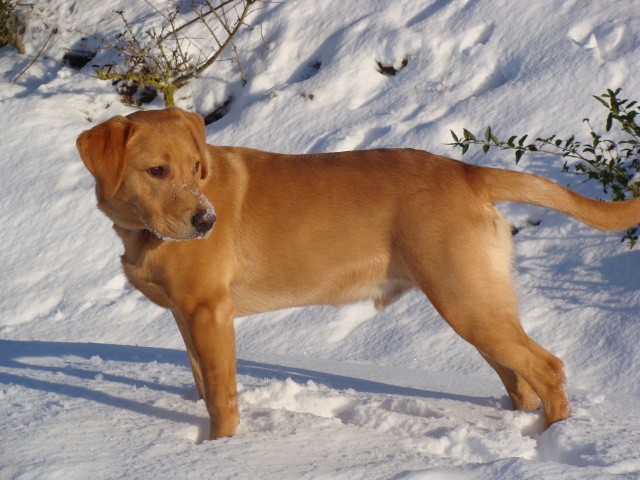 Fox Red/Yellow Lab size query
Question
Hi,
I have a 6 1/2 Fox Red/Yellow lab (Pedig
Fox Red/Yellow Lab size query
Question
Hi,
I have a 6 1/2 Fox Red/Yellow lab (Pedig
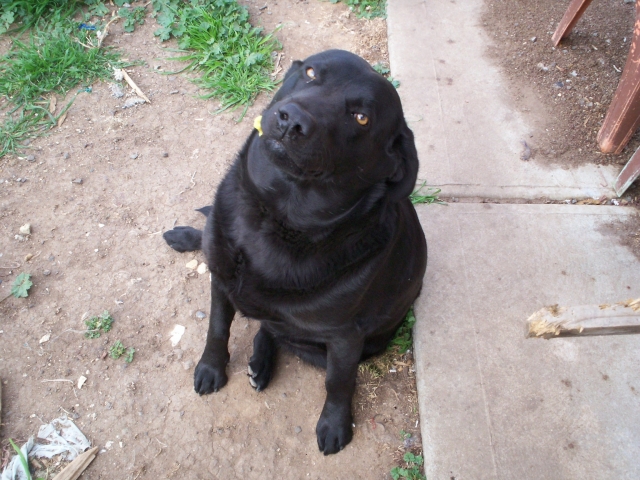 lab healthy weight
Question
Cassie
I have a black lab and she is now 3 1/2
lab healthy weight
Question
Cassie
I have a black lab and she is now 3 1/2
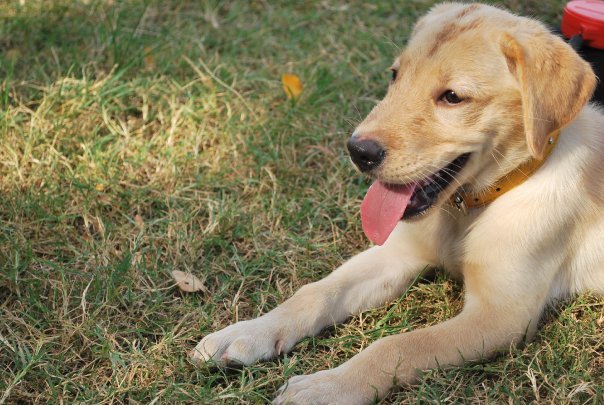 vitamins for my yellow lab
Questionbruno
QUESTION: what is the best vitamin
vitamins for my yellow lab
Questionbruno
QUESTION: what is the best vitamin
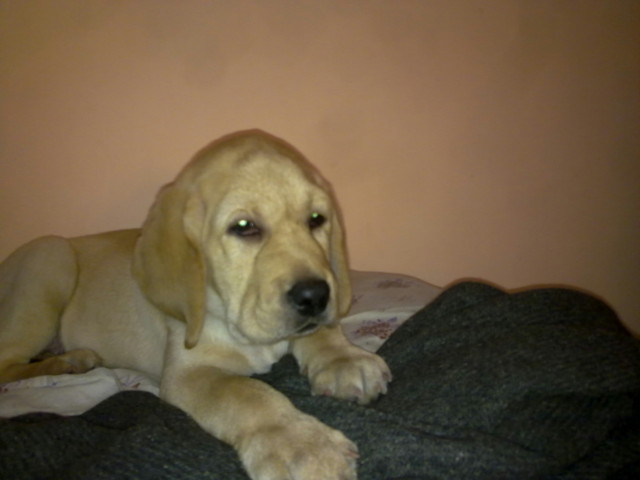 the furious nature of my lab
Question
hero-male lab
he is a fawn coloured 3 and a ha
the furious nature of my lab
Question
hero-male lab
he is a fawn coloured 3 and a ha
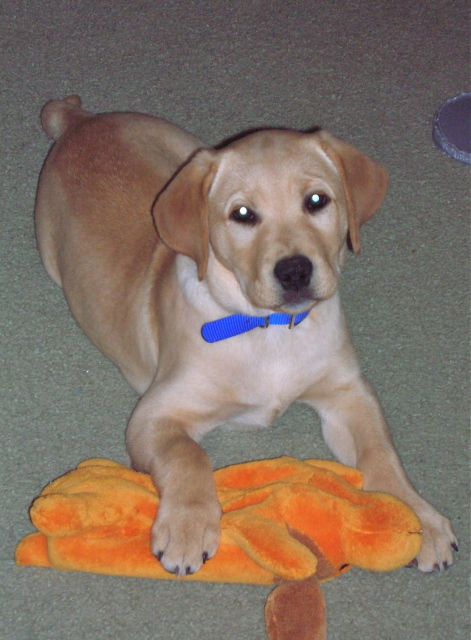 constant puppy barking
Question
My 13 week old female yellow lab barks consta
constant puppy barking
Question
My 13 week old female yellow lab barks consta